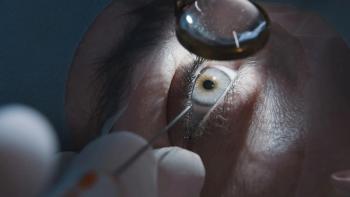
Systemic review unveils research is lacking on antituberculosis therapy's impact on tuberculous uveitis
The review “illuminates the pressing need for further research into this sight-threatening condition, particularly prospective, randomized, or well controlled cohort studies,” according to its authors.
A recent systemic review found that while antituberculosis therapy (ATT) can provide positive outcomes to patients with tuberculous uveitis, current data does not support strong conclusions concerning the impact of ATT on disease progression, response, or relapse risk.1 Study authors, led by Jemma W. Taylor of the Department of Infectious Diseases at the Peter Doherty Institute for Infection and Immunity at the University of Melbourne in Melbourne, Australia, stated that the review “illuminates the pressing need for further research into this sight-threatening condition, particularly prospective, randomized, or well controlled cohort studies.”
The review included 55 studies and founded that heterogeneity in the methodology of said studies precluded metanalysis. In addition to a narrative analysis, a risk of bias analysis was also undertaken using the Newcastle-Ottawa scale. Medline, Embase, and Central databases were used to search for studies, which was completed on June 20, 2023. Studies that were case reports, included fewer than 10 participants, participants having a positive microbiological diagnosis of TB, reported on less than 6 months of follow up after initiation of therapies, and where all participants had microbiological confirmation of TB from ocular or non-ocular specimens were excluded from the review. A total of 11365 studies were initially identified, with 6236 excluded as duplicate publications and 5040 deemed irrelevant by title and abstract review.1
Overall, study authors found that methodological quality of studies was low. “Studies reporting visual acuity (VA) found that most participants improved or were stable over time,” the study authors reported. “Very few studies reported outcomes for participants that did not receive ATT, however one study of participants who were managed with immunosuppressive therapy alone found similar results, with 14/17 participants either having improvement in VA or stable VA. Studies that reported treatment success, failure or recurrences did not show a clear difference between those who received ATT and those who did not.”
The study authors also found that a recurring issue with many of the studies involved in the review was that a positive response to initiating ATT was used as 1 of the diagnostic criteria for TBU. “This creates significant bias in the outcomes of studies, with a positive response to treatment being an inclusion criterion in the assessment of that treatment,” they stated. Additionally, other studies used only participants with uveitis and immunological evidence of TB exposure who had been started on ATT, which results in a lack of data for other managements or the natural history of the disease.
Reference:
Taylor JW, Wright GEL, Lim LL, Denholm JT. A systemic review of the utility of antituberculosis therapy for presumed tuberculous uveitis. BMC Infectious Diseases. 2025;25(112). https://doi.org/10.1186/s12879-024-10288-1
Newsletter
Want more insights like this? Subscribe to Optometry Times and get clinical pearls and practice tips delivered straight to your inbox.





